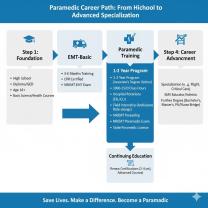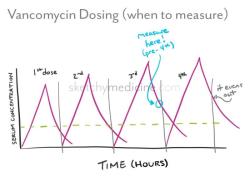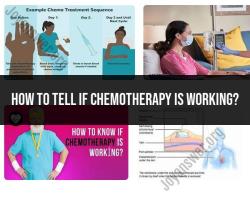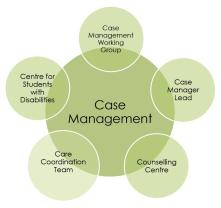How are you managing chronic rhinosinusitis?
CRS is a condition characterized by inflammation of the sinuses and nasal passages that lasts for an extended period. Management of CRS typically involves a combination of medical treatments and lifestyle changes. Here are some common strategies for managing chronic rhinosinusitis:
Medical Treatments:
- Nasal Corticosteroids: These prescription or over-the-counter nasal sprays can help reduce inflammation in the nasal passages and sinuses.
- Antibiotics: If a bacterial infection is present, a healthcare provider may prescribe antibiotics to clear the infection.
- Saline Nasal Irrigation: Regular use of saline (saltwater) nasal irrigation can help clear mucus and irritants from the nasal passages.
- Decongestants: Over-the-counter decongestants can provide temporary relief from nasal congestion, but they should not be used for an extended period.
- Allergy Medications: If allergies contribute to CRS symptoms, antihistamines or allergy shots may be recommended.
Lifestyle Modifications:
- Hydration: Staying well-hydrated can help keep mucus thin and prevent congestion.
- Steam Inhalation: Inhaling steam from a bowl of hot water can relieve congestion and discomfort.
- Avoiding Irritants: Reducing exposure to smoke, allergens, and environmental irritants can help alleviate symptoms.
- Humidification: Using a humidifier in your home can add moisture to the air, which may help relieve dryness and congestion.
- Diet: Some individuals find that certain foods can trigger or worsen their symptoms. Keeping a food diary may help identify triggers.
Surgery:
- In cases of severe or recurring CRS that doesn't respond to medical treatment, surgery may be considered. Surgical options may include endoscopic sinus surgery or other procedures to improve sinus drainage.
Allergy Management:
- Identifying and managing allergies, such as avoiding allergens or undergoing allergy immunotherapy, can help reduce CRS symptoms in some individuals.
Consulting a Specialist:
- For complex or severe cases of CRS, it's advisable to consult with an ear, nose, and throat (ENT) specialist who can provide advanced treatments and recommendations.
It's important to work closely with a healthcare provider to develop a personalized treatment plan for CRS. Not all treatments are suitable for everyone, and the management of chronic rhinosinusitis can vary from person to person. If you are experiencing symptoms of CRS, consult a healthcare professional for an accurate diagnosis and guidance on the most appropriate management strategies for your specific condition.
Managing Chronic Rhinosinusitis: Strategies for Relief
Chronic rhinosinusitis (CRS) is a long-term inflammation of the sinuses that lasts for 12 weeks or longer. It can cause a variety of symptoms, including nasal congestion, runny nose, facial pain and pressure, and postnasal drip.
There are a number of strategies that can be used to manage CRS and relieve symptoms. These include:
Medications: There are a number of medications that can be used to treat CRS, including over-the-counter and prescription medications. Over-the-counter medications, such as saline nasal sprays and decongestants, can help to relieve nasal congestion and runny nose. Prescription medications, such as nasal corticosteroids and antibiotics, can be used to reduce inflammation and fight infection.
Allergy treatment: If allergies are a trigger for your CRS, it is important to treat them effectively. This may involve taking allergy medications, avoiding your triggers, or getting immunotherapy injections.
Lifestyle changes: There are a number of lifestyle changes that can help to reduce the severity of CRS symptoms. These include:
- Staying hydrated by drinking plenty of fluids
- Using a humidifier to add moisture to the air in your home
- Avoiding irritants, such as cigarette smoke and secondhand smoke
- Getting regular exercise
Treatment Options and Therapies for Chronic Rhinosinusitis
In addition to the strategies listed above, there are a number of treatment options and therapies that can be used to treat CRS. These include:
- Balloon sinuplasty: This is a minimally invasive procedure that uses a balloon to widen the sinus openings. This can improve drainage and reduce inflammation.
- FESS (functional endoscopic sinus surgery): This is a more invasive surgery that involves removing blockages and polyps from the sinuses. FESS is typically recommended for patients with severe CRS that has not responded to other treatments.
- Immunotherapy: Immunotherapy is a treatment that helps to desensitize the body to allergens. This can reduce the frequency and severity of CRS symptoms.
The Role of Medications in Chronic Rhinosinusitis Management
Medications play an important role in the management of CRS. There are a number of different types of medications that can be used to treat CRS, including:
- Nasal corticosteroids: These medications reduce inflammation in the sinuses. They are typically the first line of treatment for CRS.
- Antibiotics: Antibiotics are used to treat bacterial infections in the sinuses. They are typically prescribed for short-term use.
- Decongestants: Decongestants help to relieve nasal congestion by narrowing the blood vessels in the nose. They are typically used for short-term relief of symptoms.
- Antihistamines: Antihistamines are used to block the effects of histamine, a chemical that is released during allergic reactions. They are typically used to treat CRS symptoms that are caused by allergies.
Surgical Interventions for Severe Chronic Rhinosinusitis
Surgery is typically recommended for patients with severe CRS that has not responded to other treatments. The most common type of surgery for CRS is functional endoscopic sinus surgery (FESS). FESS is a minimally invasive surgery that involves removing blockages and polyps from the sinuses.
Lifestyle Changes and Home Remedies for Rhinosinusitis Management
There are a number of lifestyle changes and home remedies that can help to reduce the severity of CRS symptoms. These include:
- Staying hydrated: Drinking plenty of fluids helps to thin mucus and make it easier to drain.
- Using a humidifier: Adding moisture to the air in your home can help to loosen mucus and relieve congestion.
- Avoiding irritants: Irritants, such as cigarette smoke and secondhand smoke, can worsen CRS symptoms.
- Getting regular exercise: Regular exercise can help to improve drainage and reduce inflammation.
If you have CRS, it is important to work with your doctor to develop a treatment plan that is right for you. There are a number of different treatment options available, and the best approach will vary depending on the severity of your symptoms and your individual needs.













